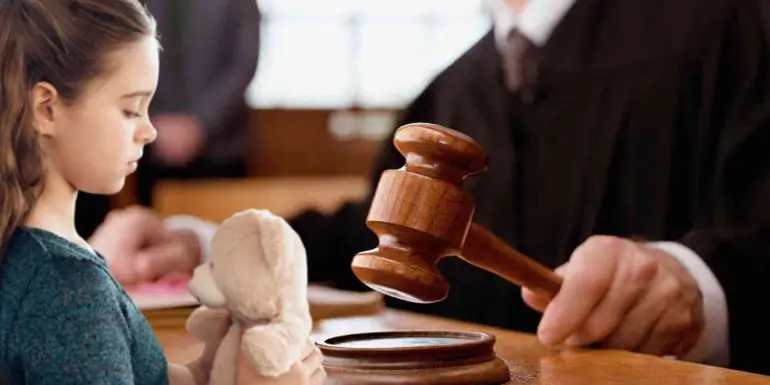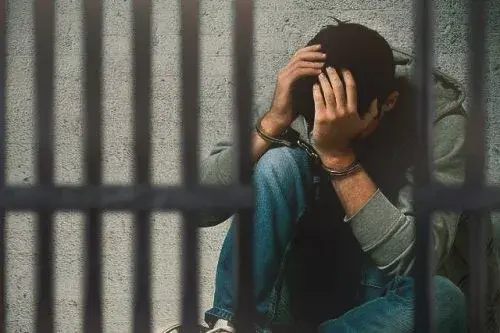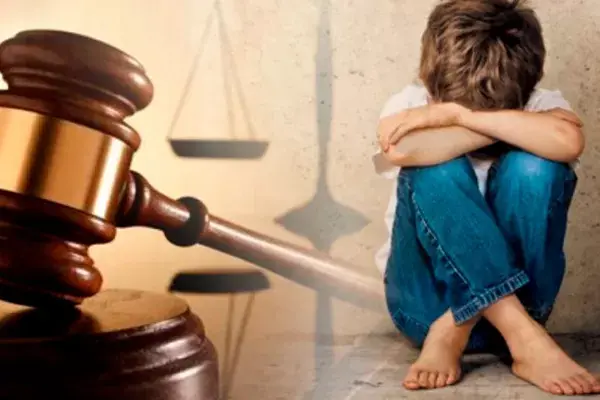Why do children come into contact with Justice?
There are many reasons why children become involved in the Judicial System. In most cases they have conflicts with the law, but they may also come into contact with this system as victims or witnesses of a crime.
Children in conflict with the law
A child may be in conflict with the law for various reasons. Many times they have committed a crime, such as theft or alcohol consumption, but few infractions committed by minors are very serious. Only 5 to 10% of detained children have committed a very serious crime.
However, a child may also be in conflict with the law if he or she is perceived to be “at risk of crime” or is considered in danger because of her behavior or where she lives. For example, street children can be accused of committing an infraction, especially in the Philippines, Brazil or Kenya. Many of these children are seen as a threat, as they wander in groups or beg, and can be arrested without having broken any laws.
Other children are arrested due to their immigration status, especially if they are in an irregular situation (without documents). However, refugee or asylum-seeking children, who have left their country due to the danger they faced there, can also be arrested. Some are released quickly, but others are left in prison for months or even years.
Children may also find themselves in conflict with the law if they are victims of unjustified actions by judicial authorities. If sought, such actions are unforgivable violations of Children's Rights. If this is not the case, they are still very serious judicial errors.
In the vast majority of cases, children do not come into conflict with the law voluntarily, since there are many social reasons that lead them to act in such a way. Some minors who live on the streets and steal have no other option. They are forced into this lifestyle due to poverty, lack of family stability, lack of education and employment prospects, neglect, abuse, exploitation, or even drug or alcohol addiction.
Victims and witnesses
Children have not always had to break the law to become involved in the Judicial System.
On the contrary, some may be victims as a result of the action of another person who has broken the law. These minors have to appear in court so that the other person, whether adult or child, can be punished, but, subsequently, they seek the restitution of their rights and compensation, which is usually financial, to be able to rebuild their lives.
Other children participate in the judicial system as witnesses, since they have heard or witnessed a crime or have some information that can be useful to verify the veracity of an event when the law has been broken. As witnesses, children appear in court to tell what they know, which is written down as testimony so that it is not forgotten.
The violation of children's rights in the judicial system
Children are not always treated according to their age or maturational state, which can generate confusion, fear or even guilt. The right of children to be duly heard during proceedings, both judicial and administrative, and in the processes in which they participate is not sufficiently guaranteed and in many cases is not respected. Of particular concern are the actions of professionals in the psychological assessments of boys and girls.
Too often there are boys and girls who are unprotected and sometimes exposed to violence, largely due to the lack of knowledge of children's rights on the part of legal operators, as well as the lack of specialized and adequate resources to respond. to judicial situations in which children intervene, whether as victims or witnesses of a crime, as lawbreakers, in cases of marital crisis or homelessness or with respect to immigration laws, among other situations.
The forms of institutional violence
Institutional violence is a form of violence against children that the United Nations includes in its World Report on Violence against Children. Violence is any physical, mental or emotional harm caused to a child, by action or omission, in any area, including justice.
More human, material and legal resources are necessary to properly serve boys and girls in the judicial sphere and guarantee their rights. In particular, it is urgent to physically adapt the spaces in the courts where the interviews must be carried out and where the boys and girls must wait, as well as having the technical and audiovisual material available that allows the participation of the boy or girl in the processes without having to see their attacker or having to give a statement in a room full of unknown adults.
It is equally urgent to reinforce the number of specialized prosecutors, judges and technical personnel and guarantee their specific training in children's rights.
The reasons for concern can be summarized as follows:
- The lack of adequate and accessible legal advice for boys and girls.
- The lack of means, both material and human, to address with all guarantees the participation of boys and girls in judicial procedures and respect their right to be heard.
- The lack of supervision and complaint mechanisms for the actions of legal operators.
Reforms in the judicial field in times of crisis?
Boys and girls need to go or face the justice system for different personal and legal reasons and circumstances. Access to justice for boys and girls should depend on respect for and guarantees of their rights, but this is not always the case. More human, material and legal resources are necessary to properly serve boys and girls in the judicial sphere and guarantee their rights. In particular, it is urgent to physically adapt the spaces in the courts where the interviews must be carried out and where the boys and girls must wait, as well as having the technical and audiovisual material available that allows the participation of the boy or girl in the processes without having to see their attacker or having to give a statement in a room full of unknown adults.




